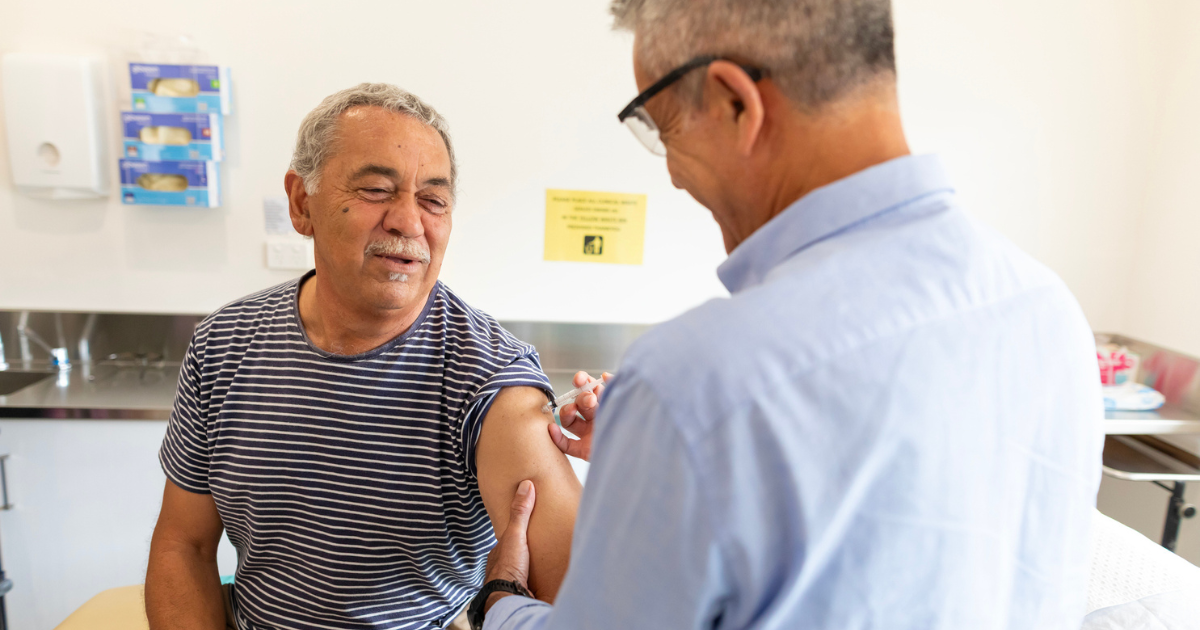Can the shingles vaccine lower dementia risk?

Dementia is a concerning public health challenge. As of 2024, nearly 7 million people over age 65 in the United States have been diagnosed with Alzheimer’s disease. With that number projected to increase to 13 million by 2060, researchers are seeking ways to reduce risk, slow progression and increase prevention.
Dementia is an umbrella term for symptoms and conditions that cause cognitive decline and impact daily functioning. Caused by a complex interplay of genetics, age-related changes, lifestyle and health factors, the exact causes for these changes in the brain are still not completely understood.
The most common forms of dementia are Alzheimer's disease (about 60% of cases), vascular dementia (due to stroke) and Lewy body dementia.
“People are now seeking diagnosis for dementia at earlier stages, with more awareness of the pre-dementia stage of mild cognitive impairment,” says neurologist Dan Murman, MD. “We see the overall prevalence of dementia increasing due to people living longer and the growth of the US population over the age of 65, with Alzheimer's disease becoming more common with advancing age.”
For decades, dementia research has mainly examined the accumulation of plaques and tangles in the brains of people with Alzheimer’s disease. Researchers are now exploring other possibilities, including certain viral infections—and whether vaccines could play a protective role.
Potential link between the shingles vaccine and reduced dementia risk
A new study from Wales analyzed whether the shingles vaccine could potentially fight against cognitive decline in the aging brain. Researchers examined the health records of over 280,000 adults aged 71 to 88 who did not have dementia when vaccinated with a live-attenuated shingles vaccine (a modified, weakened live version of the virus). Over seven years, they compared the outcomes of people closest in age who were eligible versus ineligible to receive the vaccine.
Why the shingles vaccine?
Shingles is a viral infection caused by the same virus as chicken pox (varicella-zoster). When a person contracts chicken pox, the virus stays dormant in the nerve cells and can reappear (reactivate) as shingles later in life. With the theory that certain viruses affecting the nervous system may increase the risk of dementia, researchers reported that the herpes zoster (shingles) vaccine may help lower the risk.
Can the shingles vaccine lower dementia risk? Maybe.
“There are possible mechanisms by which the shingles vaccine could impact dementia risk, such as suppressing reactivation of the varicella-zoster virus in the brain or more generally boosting the immune system,” says Dr. Murman. “However, the exact mechanisms are still unknown. This study is a positive step and has its strengths as a natural experiment, but also has its limitations as an observational association study. While the study found a 20% relative risk reduction, the absolute risk reduction was only 3.5%, indicating a modest effect size.”
A separate analysis using death certificate data found that eligibility for the shingles vaccine reduced dementia-related deaths by approximately 5% over nine years.
The study also showed that there was a stronger response in women. It is unknown if this is because shingles is more common in women or because women generally seem to have higher antibody responses to vaccination.
The study's findings are compelling, but include several limitations.
While promising, the study has notable limitations:
- The study was observational and cannot prove causation.
- Health records may underreport or miss dementia cases and lack detailed lifestyle data.
- The vaccine studied (Zostavax) is no longer available. In the U.S., the current standard is the Shingrix vaccine, which is a recombinant (non-live) formulation that contains a part of the genetically engineered virus. It is unclear whether the Shingrix vaccine would have the same effects on dementia risk.
Dementia is complex, prompting the need for more research
While there seems to be some benefit in reducing dementia risk through vaccination, more research is needed to fully understand the mechanisms and implications. Although the study was a high-quality association study, it doesn’t provide definitive proof of causation and clinical trials are needed.
“By age 80, about half of people will get shingles,” adds Dr. Murman. “The vaccine in this study resulted in about a 40% reduction in people getting shingles. There is value in adults over 65 getting the shingles vaccine, and this study adds that there may be some secondary benefits like reducing dementia risk, although relatively small, by helping to suppress the viral DNA in the brain and peripheral nerves.”
Reduce your risk: Focus on what you can control
Focus on lifestyle factors for dementia prevention, including:
- Get the shingles vaccine to prevent shingles.
- Stay mentally and physically active.
- Eat a healthy, balanced diet.
- Follow good sleep habits and reduce stress.
- Treat health conditions like diabetes, high blood pressure and sleep apnea.
If you notice consistent declines in thinking or memory, seek an evaluation. “Potential new treatments targeting early Alzheimer's changes could change the approach to screening in the future,” says Dr. Murman. “Clinical trials are showing promising new therapies that may slow brain changes and the rate of decline in the early stages of Alzheimer's disease.”
The Nebraska Medicine Memory Disorders Clinic helps by bringing together a variety of specialists to handle all aspects of care. Schedule an appointment by calling 800.922.0000.







